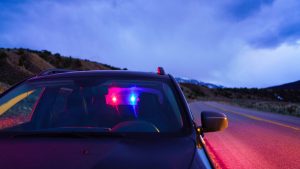Do I have to do Roadside Field Sobriety Tests?
The answer varies from state-to-state, but in Arizona, the answer could be “yes” or “no” and you’ll have to decide which is right for you. In order to understand this, we need to explore what Field Sobriety Tests are and why the police use them.
Field Sobriety Tests or “FSTs” are a series of roadside coordination tests. In the late ‘70s and early ‘80s, they were tested for efficacy and three were “validated” (that means they correlate to a particular blood alcohol concentration–it does not mean they are “valid”). The three tests are the Horizontal Gaze Nystagmus (HGN), Walk-and-Turn (WAT), and the One-Leg-Stand (OLS).
The HGN is a test where an officer waves a pen or finger back and forth in front of your eyes. You watch the object travel back and forth and if the officer sees a jerkiness (nystagmus) to the movement at specific instances, the officer records this a “cue” or “clue.” The officer is looking for the cues at three different instances in each eye, which gives a total of six cues. The test is not reproducible. There are many innocent reasons for nystagmus. And it is totally subjective.
The WAT consists of a person walking nine steps heel-to-toe down a straight line, turning as indicated and walking back nine steps. Make two or more mistakes that the officer is looking for, and you have failed. The test is designed to make people fail. One could do more than 98% of the test properly and still fail. Officers often “double-dip” on cues. In other words, if a person steps off of the line once, that person would also miss touching heel-to-toe. That’s one mistake, but two cues and a failure.
The OLS consists of a person standing on one leg, and counting to thirty. If the person does two or more of the following four things: sways, hops, puts foot down, uses arms for balance, the person fails. Thinking that you can get a person out of a car, after midnight, know nothing about her medical conditions and have this test be valid for anything is ridiculous.
Let’s look at the sole reason why the answer is “yes.”
The Arizona Supreme Court has said that Field Sobriety Testing is not optional. The Supreme Court has deemed it to be a “reasonable”search. The 4th Amendment to the United States Constitution only protects people against “unreasonable” searches. So, with a blanket decision that covers every situation, the Arizona Supreme Court has determined that if the police have enough reason to detain a driver, the driver must submit to the roadside testing procedure.
What does this mean to the driver at the side of the road who has to decide whether to submit to the unfair and skewed testing? It means that if the driver declines to take the tests, the police can take that as a sign of guilt and use it when deciding if there is enough probable cause to arrest. It also means that a prosecutor can argue that the driver–now defendant–refused to take the tests because she knew she was guilty and would fail the tests. This does not mean that a defendant may not fight that allegation, however. There are certainly many innocent reasons for declining to take the roadside tests.
Now, let’s look at why the answer is “no.”
There is no criminal or civil penalty for declining to take the tests. The police cannot take your license away and they cannot charge you with a crime of “refusing” to take the Field Sobriety Tests. That simply is not a crime.
The police cannot physically force someone to walk on a straight line, stand on one leg, or do any of the other roadside coordination exercises. Testing requires a great degree of cooperation from the subject.
Moreover, when someone with a disability is stopped–say for example a returning veteran who lost a leg in Afghanistan–it would be wholly unfair to allow the Court to criminalize that person’s inability to walk heel-to-toe down a straight line.
Finally, while someone can fail a FST, one cannot pass. Even where a person exactly performs every portion of a FST, the result is “inconclusive.” If a person does not take the FSTs, the result is also “inconclusive.” So, the smart thing to do is to start out with the best possible result–inconclusive–and remain there. Declining to take the tests has the same result the same as passing and is the smart thing to do.
